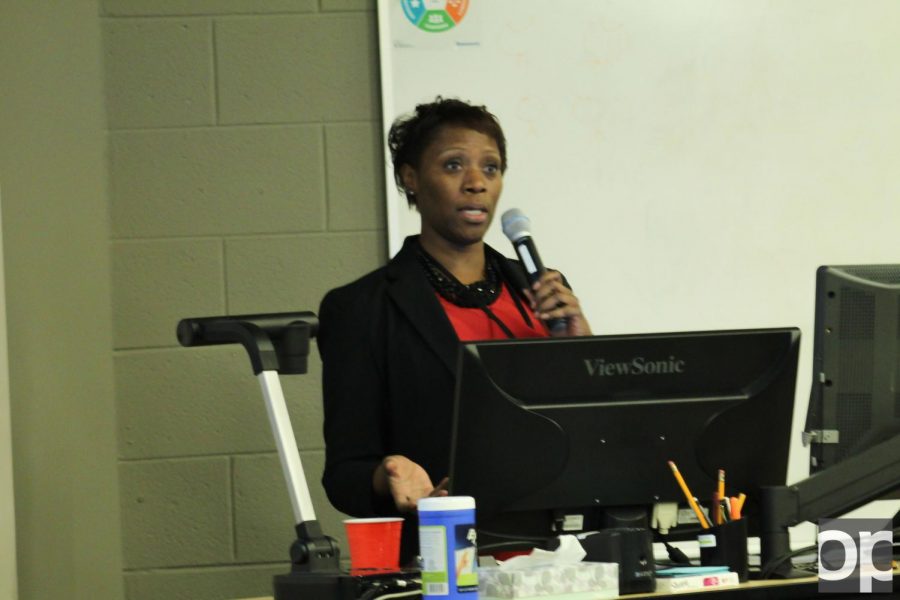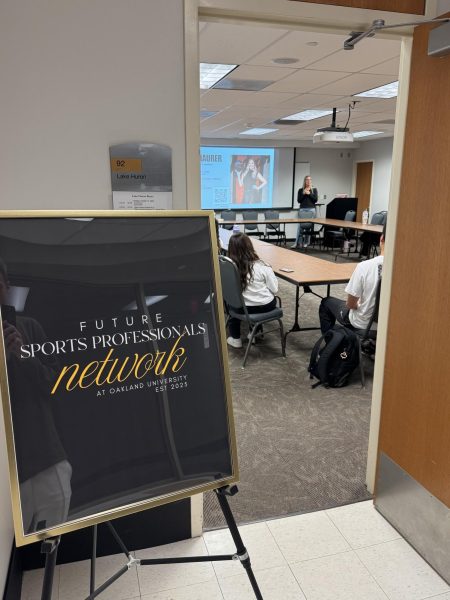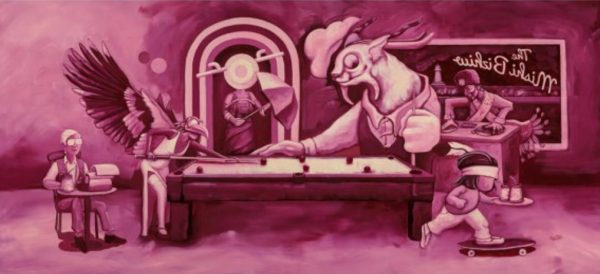OUWB raises awareness on World AIDS Day
Speaker Michelle George delivers a presentation about HIV/AIDS and how many people are affected by it.
On Dec. 1, millions of people across the globe united to fight against HIV/AIDS in observance of World AIDS Day. As people celebrate the success of HIV/AIDS awareness and medical advancements, many are unfortunately reminded of the thousands of young people that comprise the 39 percent of new HIV/AIDS cases in the U.S.
In support of World AIDS Day, the The American Medical Student Association (AMSA) at the Oakland University William Beaumont School of Medicine sponsored an event that featured speaker Michelle George, registered nurse and Master of Science in Nursing.
George, an advanced practice registered nurse (APRN), has been an RN for more than 27 years, working in neonatal units, emergency rooms, occupational health and primary care nursing.
From 2000 to 2015, George was a public health nurse with the Oakland County Health Division where she specialized in HIV and sexually-transmitted infections, immunizations and tuberculosis prevention.
“There are over 45,000 people diagnosed with HIV each year, so you are probably wondering why we still have this epidemic in society when it’s over 35 years of age,” George said.
One of the main things in finding a cure is removing the stigma and discrimination against the virus.
“[Stigma] is what is keeping people from knowing about HIV,” George said. “The virus doesn’t know who you are and doesn’t care which race you are. Anyone could be affected.”
In spite of the startling statistics, the hope of creating an HIV/AIDS free generation has not yet been lost. George expressed how many health centers are providing free HIV/AIDS testing in an effort to reduce the number of new cases and allow those infected to seek treatment.
“Nearly 60 percent of young people infected with HIV/AIDS are not aware they have this disease,” she said.
According to George, HIV self-testing can be described as “A process where a person who wants to know his or her HIV status collects a specimen, performs a test and interprets the test results in private or with someone they trust.”
Although HIV self-testing is beneficial, George said it does not provide a definitive HIV-positive diagnosis as it is an initial test which requires further testing by a health worker.
Jennifer Knepel, the OUWB student behind the event, explained the importance of events like this on campus.
“As future physicians, it’s important for medical students to understand the barriers that HIV/AIDS patients face and know how to collaborate with organizations in the community, such as Matrix Human Services, to best support them,” said Knepel.
The message behind reclaiming Dec. 1 as World AIDS Day is that the fight to end HIV/AIDS desperately needs all of us.
People of society can help the fight against HIV/AIDS by eradicating stigmatizing behavior, supporting HIV charities in the U.S. and abroad that are working to educate the public about HIV, campaigning for the rights of people living with HIV and by challenging discrimination.







